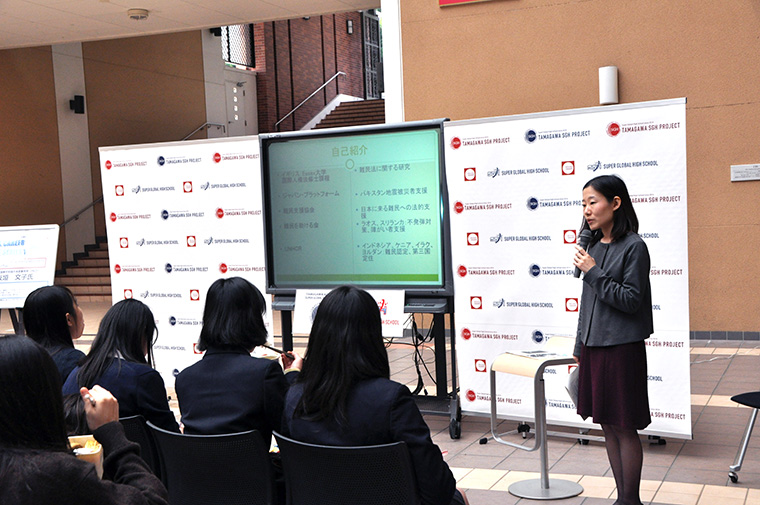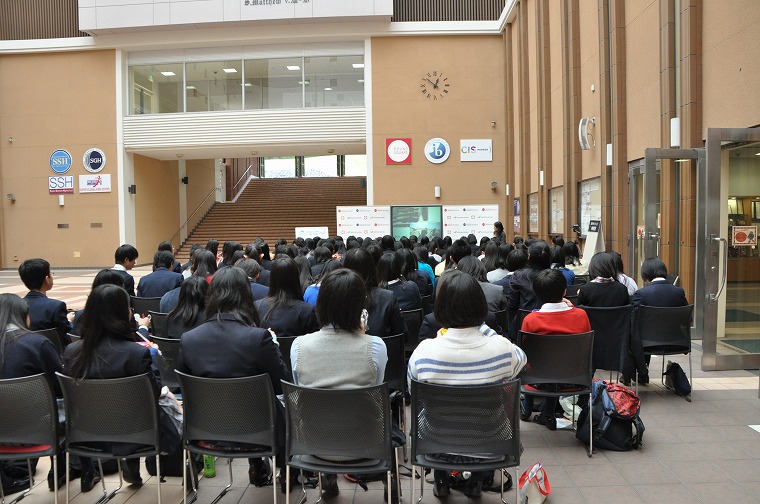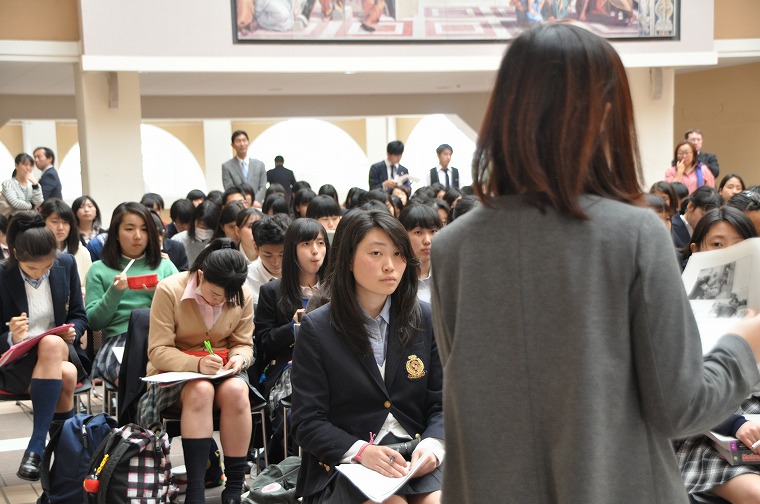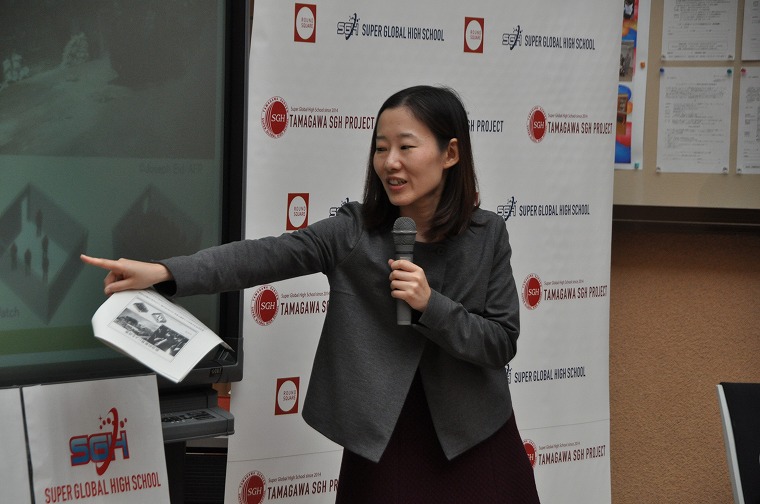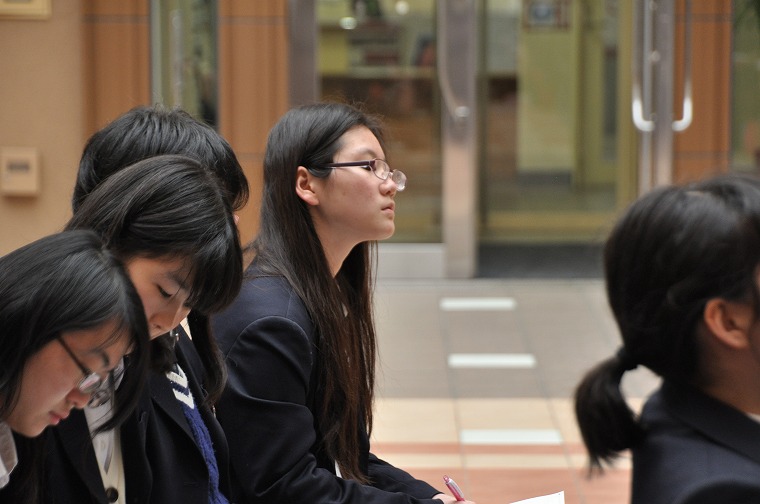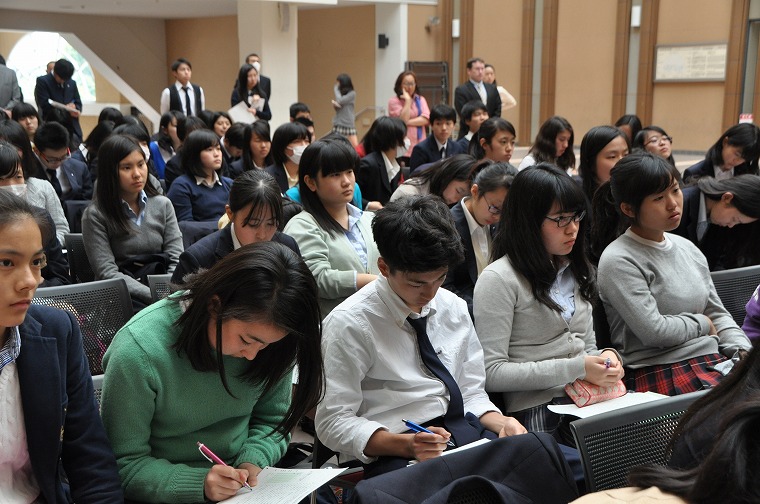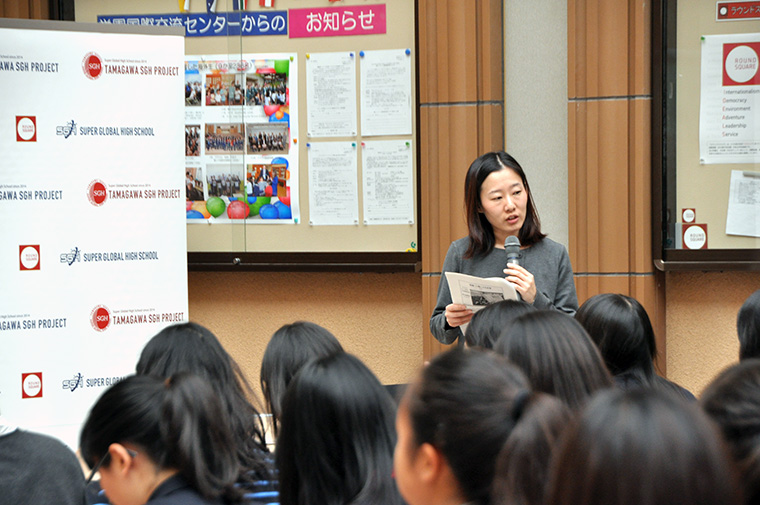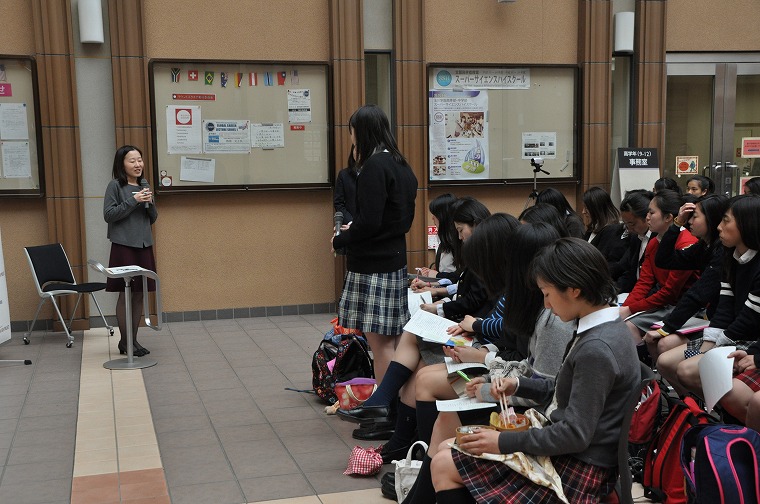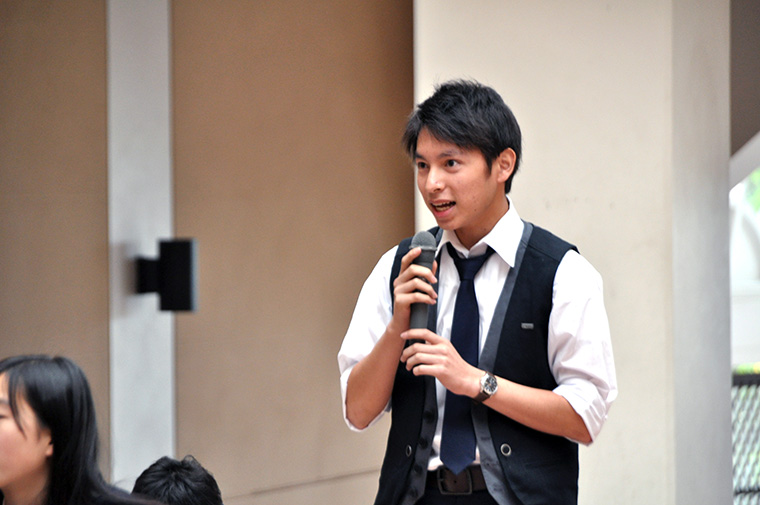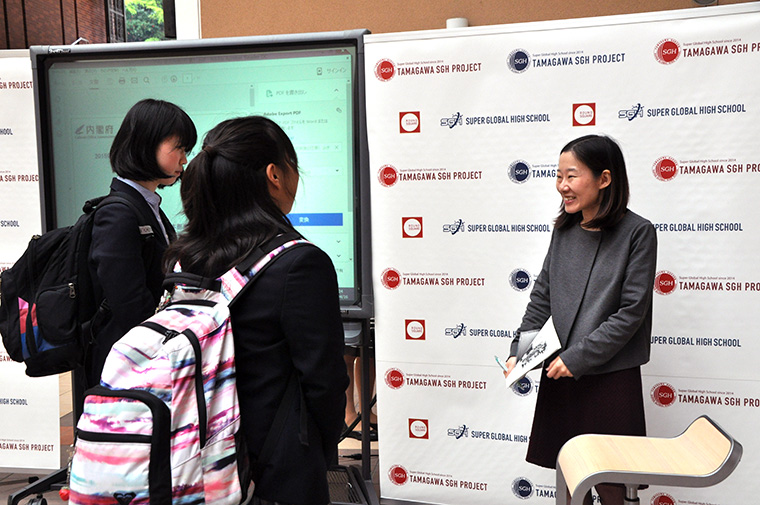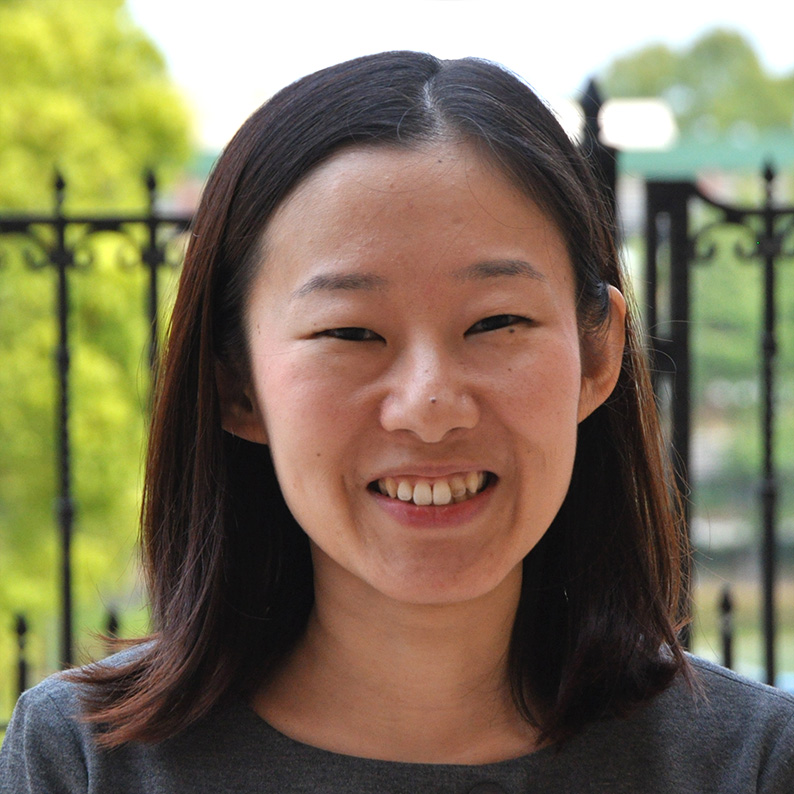The first lecture of the Global Career Lecture Series for this school year was held in TED-style during lunch time. The lecturer was Fumiko Itagaki, who is a program advisor at the Secretariat of the International Peace Cooperation Headquarters, Cabinet Office. After working in conflict areas as an NGO member and a staff member of the Office of the United Nations High Commissioner for Refugees (UNHCR), she assumed her present position.
On this day, under the theme of “Human Rights,” Ms. Itagaki talked about the issue of refugee protection, based on her experience as a UNHCR member.
In the warm spring sun that complemented fresh green springing to life all over the campus, over 100 students gathered at the atrium and listened to Ms. Itagaki’s talk with great interest. The event was attended by high school students who had attended the GCLS events before as well as some new faces and even some interested 9th graders.
At first, Ms. Itagaki introduced herself, “It was because of my small stature that I became interested in refugee issues,” the audience was intrigued by this statement. She continued, “I had a complex about my appearance. But, when I heard about Sadako Ogata, who was small in stature but was active on the world stage, I was impressed by her and interested in refugee protection work.” Hearing these words, the audience developed a sense of familiarity with her.
Then, presenting some situations with pictures, Ms. Itagaki explained that refugees are people whose lives were destroyed by conflict and who often suffered human rights violations for religious, racial or political reasons. For example, a government that oppresses citizens who take part in demonstrations, possibly using tanks against them, arbitrary arrests and people being confined to prisons for many days. She told the audience of such daily incidents based on her workin the field.
Ms. Itagaki spoke about issues that impact refugee assistance work on basic day to day levels. She said “the most important thing is to support refugees according to their own situations and listening carefully to each person and his or her family.”
There are a lot of people who are placed in detention centers when they try to seek asylum because they lost their identification while traveling through often terrible surroundings.She interviewed these types of people to examine their eligibility for refugee status,and tried to help them in these processes.
Concerning other cases, she mentioned “the background issues and unavoidable reasons for child marriage and labor,” “cases of recognized refugees who live together in dwellings that UNHCR supported,” “a case of a hearing-impaired boy who could get medical assistance in Germany”. She also talked about “refugee protection” work that supports refugees’ human rights.
After the lecture, she received a lot of questions. Students asked things like “Have you asked a government to stop human rights abuses?” “What was the most shocking episode you witnessed?” “Do you think that you have been changed through your activities?” “After growing up, what kind of life are the former refugee boys living?”
From start to finish, Ms. Itagaki spoke in an unpretentious style, and her talk certainly helped the audience develop a deeper comprehension of the ordinary realities facing refugees and humanitarian workers. “There are indeed places that have such problems all over the world today.”




